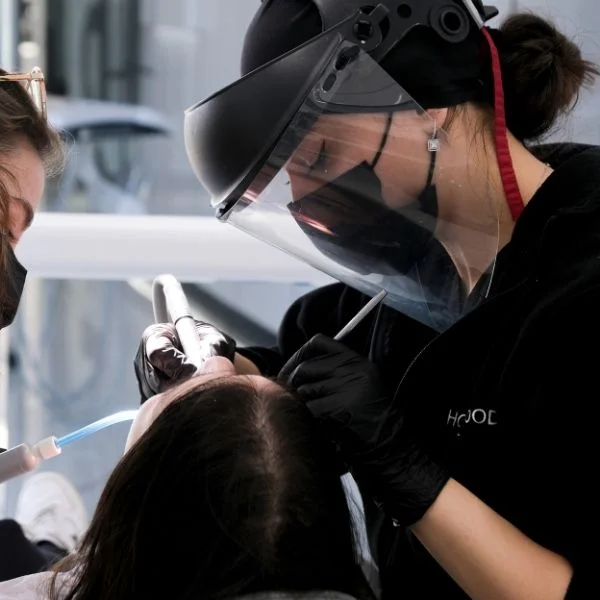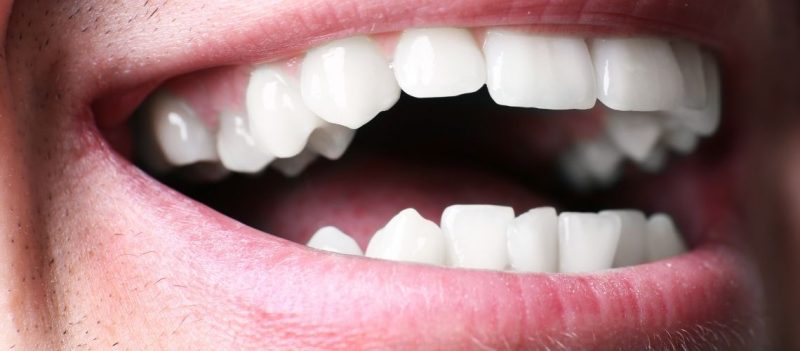Root canal treatment, also known as endodontics, is a crucial dental procedure. It targets the infection at a tooth’s core. Interestingly, despite common fears, this treatment is not painful. Moreover, it offers a lifeline for teeth at risk of removal. In Turkey, the practice of endodontics has gained prominence. Patients from across the globe seek these services for their high quality and cost-effectiveness. Therefore, saving a compromised tooth in Turkey through root canal treatment has become a preferred option. The procedure not only alleviates pain but also preserves the natural tooth, avoiding the need for more invasive alternatives.
Root Canal Treatment in Turkey

The Imperative for Care
Root canal treatment becomes essential when bacteria penetrate a tooth’s core, the root canal, due to various factors. Initially, these bacteria thrive in the oral environment. They find their way inside the tooth following certain adverse events. These include:
- Severe tooth decay
- Compromised fillings that fail to seal the tooth adequately
- Physical injuries to teeth, which could result from incidents like falls
Subsequently, the invasion by bacteria leads to infection. Furthermore, this infection can compromise not only the affected tooth but also the surrounding oral structures. Therefore, addressing this issue promptly through root canal treatment is critical. In Turkey, dental professionals employ advanced techniques for this procedure. They meticulously remove the infected tissue, thereby preventing further damage. Moreover, preserving the tooth restores its function and appearance. Hence, the need for root canal treatment is not merely for alleviating immediate discomfort but also for ensuring long-term dental health.
Understanding Tooth Anatomy
A tooth’s architecture is elegantly simple yet profoundly complex, comprising two main sections. The crown, visible within the mouth, serves as the tooth’s facade. Conversely, the root securely embeds the tooth into the jawbone’s embrace. Additionally, a tooth is composed of several materials:
- Enamel: This hard, protective outer layer encases the crown.
- Dentine: Beneath the enamel, a softer yet resilient substance provides structural support.
- Cementum: This tough material envelops the root, safeguarding it.
- Dental pulp: Residing in the tooth’s core, this soft tissue houses nerves and blood vessels.
Moreover, the root canal system, home to the dental pulp, spans from the crown to the root’s tip. Notably, a tooth may possess multiple root canals, highlighting the complexity within. This intricate structure underscores the necessity of precise care during root canal treatments, a specialty for which Turkey has become renowned. Thus, understanding the nuanced composition of teeth is paramount for effective treatment.
1-Consultation
We advise you personally, by telephone or by e-mail. You are always welcome to contact us for further questions and information regarding treatments.
2-Treatment
The treatment takes about 4-7 days and is carried out after a detail examination.
3-Success
For us a successful smile makeover is only than when our costumer is 100% happy with the result.

Identifying the Need for Root Canal Therapy in Turkey
Initially, this condition might present itself through pain while consuming hot or cold beverages or foods, discomfort during chewing, or noticing a tooth that seems unusually mobile. Interestingly, as the infection advances, these symptoms may subside, giving the false impression of healing. However, the reality is that the infection has begun to navigate through the root canal system. Further indicators of progression include:
- Recurrence of pain upon biting or chewing
- Gum swelling near the affected area
- Discharge of pus from the tooth
- Swelling of facial areas like the cheek or jaw
- Discoloration of the tooth
It’s crucial to consult a dentist at the onset of toothache. Without intervention, the infected pulp is incapable of self-repair, potentially worsening the situation. Moreover, delaying treatment might reduce the success rate of root canal therapy. Unlike other infections, antibiotics prove ineffective against root canal infections, though they may be prescribed to address spreading infections that lead to swelling.
Executing Root Canal Therapy in Turkey
The eradication of bacteria from the root canal is crucial for addressing infections. This objective is achieved through two main strategies:
- Root canal therapy, which involves cleansing the root canal system.
- Tooth extraction, although this method is generally not preferred due to the benefits of retaining natural teeth.
Prior to initiating root canal therapy, patients are administered a local anesthetic, ensuring the process is as comfortable as a routine filling. Furthermore, after successfully removing the bacteria, the next steps involve filling the root canal and sealing the tooth with either a filling or a crown. Notably, the surrounding inflamed tissue typically recovers naturally over time. Root canal therapy boasts a high success rate, with the majority of treated teeth surviving for a decade or more. Thus, undergoing root canal treatment in Turkey stands out as a reliable option for preserving dental health while minimizing discomfort.
Post-Root Canal Care Guidelines
Post-root canal recovery is a vital phase where patients must exercise caution to ensure optimal healing. Initially, avoiding hard foods is essential to prevent undue pressure on the treated tooth. Following the completion of treatment, the restored tooth generally ceases to cause pain. However, a mild soreness might persist for a few days, which is manageable with over-the-counter analgesics such as paracetamol or ibuprofen. Should discomfort or swelling not subside post-medication, consulting the dentist is advisable. To avert the necessity for further root canal treatments, adhering to specific preventive measures is beneficial:
- Maintaining oral hygiene through regular teeth cleaning
- Limiting the intake of sugary snacks
- Ceasing smoking activities
These practices are instrumental in preserving dental health and preventing future infections. Engaging in these behaviors not only supports the recovery post-root canal but also fortifies the teeth against potential threats, ensuring long-term dental well-being.
Deciding Between Saving and Removing a Tooth
Root canal treatment, an endodontic procedure, involves eradicating the infected pulp, followed by thorough cleaning, disinfecting, and finally sealing the tooth. This method effectively preserves the tooth’s natural structure while alleviating discomfort. The primary benefit of choosing a root canal includes:
- Maintenance of the natural tooth, avoiding complex restorative solutions.
- Prevention of neighboring teeth from shifting, ensuring bite alignment and chewing efficiency.
Conversely, tooth extraction entails the complete removal of the tooth and its roots, presenting immediate resolution to pain and infection. However, the repercussions of this option underscore its drawbacks:
- Necessity for subsequent procedures to fill the gap left behind.
- Potential for more extensive dental visits involving bone grafts or sinus lifts.
Moreover, root canal therapy often proves to be more economical than extraction, considering the costs associated with replacing a tooth. Importantly, no prosthetic can replicate the look, feel, or function of a natural tooth. Therefore, despite perceptions, a root canal typically offers a less painful and more cost-effective solution compared to extraction, preserving the tooth’s integrity and ensuring its function and appearance remain as close to natural as possible.
Before & After Photos
Experience the impressive transformations of our happy patients.
Best Dentist in Turkey

Handan Nohutcuoglu
Dentist

Berkay Albay
Dentist

Pınar Heybeli
Dentist

Furkan Ay
Dentist

Burak Yakup
Dentist

Arif Mert Engin
Dentist
Our Clinic
Root Canal Treatment Cost in Turkey - İzmir
Root Canal Treatment
- Hollywood Dental: x €
- Österreich/Deutschland: x €
- Vereinigtes Königreich: x €
- Frankreich: x €





































